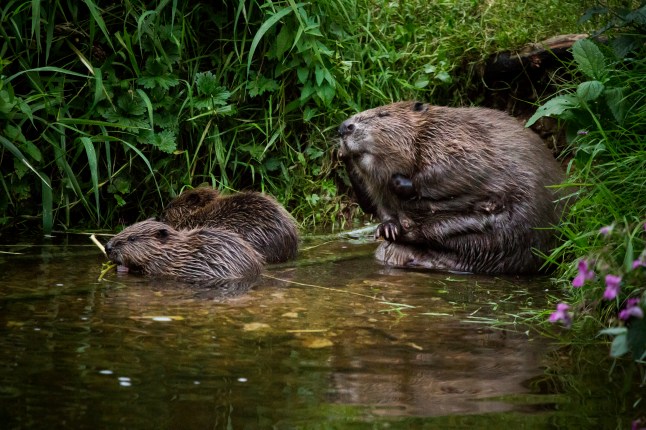Mother nature has proven itself faster and more efficient than a European government in the race to construct a £900,000 dam.
Beavers in the Brdy region of the Czech Republic built several dams in one night, completing a project which officials had been arguing about for weeks.
The swimming rodents saved planners CZK 30,000,000 and played a crucial role in protecting the area’s protected habitats.
The Brdy Protected Landscape Area (PLA) Administration had secured hundreds of thousands of pounds worth of funding to address a bypass gully in the Klabava River, which was draining water out of valuable wetland areas.

The revitalisation plan had become bogged down in administrative red tape as officials tried to obtain building permits from local authorities in charge of the land.
Just as the project appeared dead in the water, a family of about eight European beavers swooped in to save it last month.
The local beaver colony erected a dam on the very bypass gully which had been causing a headache for local environmentalists.
The new beaver-mad dam successfully waterlogged the local floodplain, which will offer good conditions for rare stone crayfish, frogs and other species to thrive on wetland.
‘The beavers overtook us!’ said Bohumil Fišer, head of the Brdy PLA.

(Provider: Nature and Landscape Protection Agency of the Czech Republic)
‘It saved several million crowns and retained several cubic meters of water and created a very effective natural wetland.’
Jaroslav Obermajer, branch head of the Czech Nature and Landscape Protection Agency, said of the beaver’s opportune timing: ‘Beavers always know best. The places where they build dams are always chosen just right – better than when we design it on paper.’
The animals have also built several smaller dams in other parts of the Klabava River.
Beavers feel safest in water and often build dams on streams to raise the water level in places where they move.
The rodents construct river barriers with trees and branches which they have cut apart with their front teeth, as well with mud, stones and grass.
Get in touch with our news team by emailing us at webnews@metro.co.uk.
For more stories like this, check our news page.
MORE: How scientists are counting tiny critically important sea creatures from space
MORE: Man returns home after weeks away to find a surprising guest living under it
MORE: First picture of girl 17, mauled to death by shark at beach














